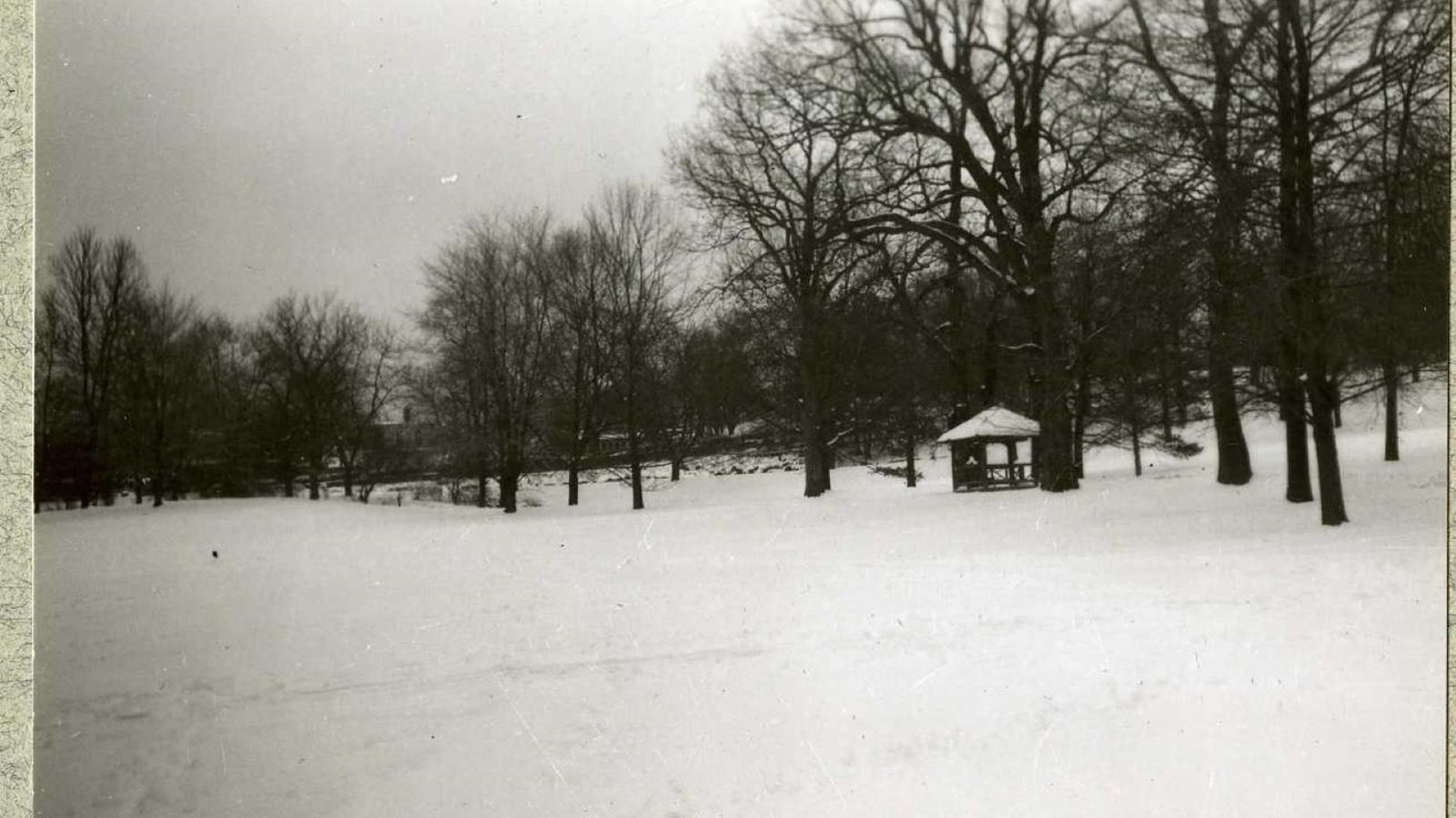Last updated: June 5, 2024
Place
Downing Park

Olmsted Archives
Quick Facts
Downing Park, the final collaboration between Frederick Law Olmsted and Calvert Vaux, was created out of the two men’s love for their mentor: Andrew Jackson Downing. Newburgh, New York offered the commission to Olmsted and Vaux, who delivered their plans in 1889. The pair provided their design for free, on the condition that the park be named after their mentor, who had lived in Newburgh.
Olmsted and Vaux had already gained prominence for creating open spaces that promote well-being of the public, favoring naturalistic, rustic, and curving landscape designs. Olmsted and Vaux brought everything they’d learned through their partnership to Downing Park, like “circulation”, which landscape architects describe as a sense of continual discovery.
Originally, Downing Park was to lay on a hillside, however Olmsted convinced Newburgh Park Commissioners to add the nearby flat land, providing land to create Polly Pond and grassy meadows for family picnics and larger community events.
Walking through Downing Park today, visitors enjoy changing views of varied natural features. Many of the trees present today were originally planted by Warren H. Manning, Superintendent of planning for the Olmsted firm. Not only would Downing Park be the final collaboration between Olmsted and Vaux, but it is also the only known commission where both their sons, John Charles Olmsted and Downing Vaux, assisted in the design.
Source: "Downing Park," The Cultural Landscape Foundation
For more information and primary resources, please visit:
Olmsted Research Guide Online
Olmsted Archives on Flickr
Olmsted Online
Olmsted and Vaux had already gained prominence for creating open spaces that promote well-being of the public, favoring naturalistic, rustic, and curving landscape designs. Olmsted and Vaux brought everything they’d learned through their partnership to Downing Park, like “circulation”, which landscape architects describe as a sense of continual discovery.
Originally, Downing Park was to lay on a hillside, however Olmsted convinced Newburgh Park Commissioners to add the nearby flat land, providing land to create Polly Pond and grassy meadows for family picnics and larger community events.
Walking through Downing Park today, visitors enjoy changing views of varied natural features. Many of the trees present today were originally planted by Warren H. Manning, Superintendent of planning for the Olmsted firm. Not only would Downing Park be the final collaboration between Olmsted and Vaux, but it is also the only known commission where both their sons, John Charles Olmsted and Downing Vaux, assisted in the design.
Source: "Downing Park," The Cultural Landscape Foundation
For more information and primary resources, please visit:
Olmsted Research Guide Online
Olmsted Archives on Flickr
Olmsted Online
